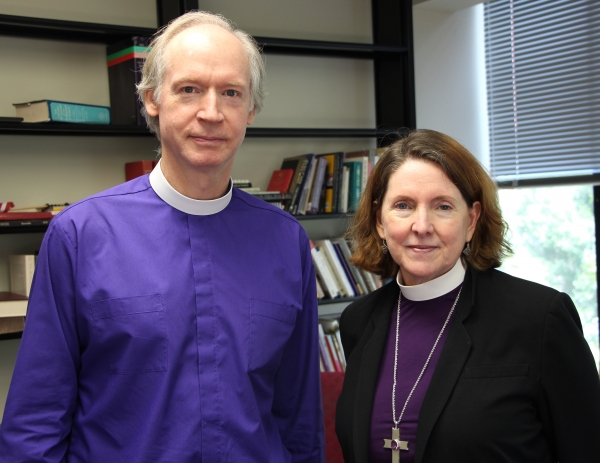Bishops of the Diocese of North Carolina Respond to Rittenhouse Verdict

"[God] has told you, O mortal, what is good; and what does the Lord require of you but to do justice, and to love kindness, and to walk humbly with your God?" Micah 6:8
The verdict in the Kyle Rittenhouse murder trial has opened again for us the questions about our system of justice and exposed the imbalance in the way the system operates. The image of justice holding the scales is helpful here. She is depicted with her eyes covered, symbolic of her objectivity and impartiality, but instead, more and more, the evidence is mounting that in our system she is simply blind and someone continues to have their thumb on the scale.
There is a vast difference between acquittal based on a narrow definition of self-defense and the exoneration of guilt. Two men are still dead. Another, extensively injured. Remorse and lament are more suitable cries than heroism.
The old double standard of the sharp contrast in the treatment of white people and people of color is imprinted all over this particular case, even from the events that unfolded that evening in Kenosha, Wisconsin. Some people will find this statement confusing. As Leonard Pitts, wrote in a recent opinion piece in the News & Observer:
“There will be those who don’t understand why race is invoked here. Rittenhouse, after all, was a white boy who shot three white men.
But those men lost whiteness the moment they joined that protest. No, that doesn’t mean they became dark of skin or curly of hair. What it does mean is that to be a white person who stands up for African-American lives is to place yourself in opposition to the great body of whiteness and privilege by which this country is driven.
It is to lose — at least for that moment — the protections afforded to you to by the fact of being white, the assumptions and presumptions that ease your path without you even knowing it. It is to lose benefit of the doubt.”
We mourn the loss of innocent lives. We lament the lack of accountability, not just for Rittenhouse, but for the system that insulated him from the consequences of his deadly choices and actions: a system that continues to execute a deadly double standard.
As followers of Jesus, we see this lack of accountability as a direct result of the systemic bias of white supremacy. The failure to protect the innocent and to hold some to a particular standard while others are offered preferential treatment raises the question not simply if the verdict was just, but if the system is just.
Jesus is both Judge and Savior. His call for justice is balanced with the promise of mercy. Mercy is offered to all who repent, who recognize their responsibility. Mercy is offered when we accept our own culpability and accountability. Jesus covers our sins as we confess them. He does not turn a blind eye to our misbehavior, our murderous actions, or to the systems which perpetuate our double standards.
Love is the way Jesus balances justice with mercy. We pray that all of us may aspire to this standard, and ask for forgiveness and mercy when we recognize that we have failed.
We remember all who have died from violence, especially gun violence. We pray for sane laws which will prevent semiautomatic weapons from being turned against innocent civilians. We aspire to build beloved community and not contribute to further divisions and hostilities within and among our communities. We commit to our part in shaping a community rooted in God’s requirements of us and God’s perfect love for us.
